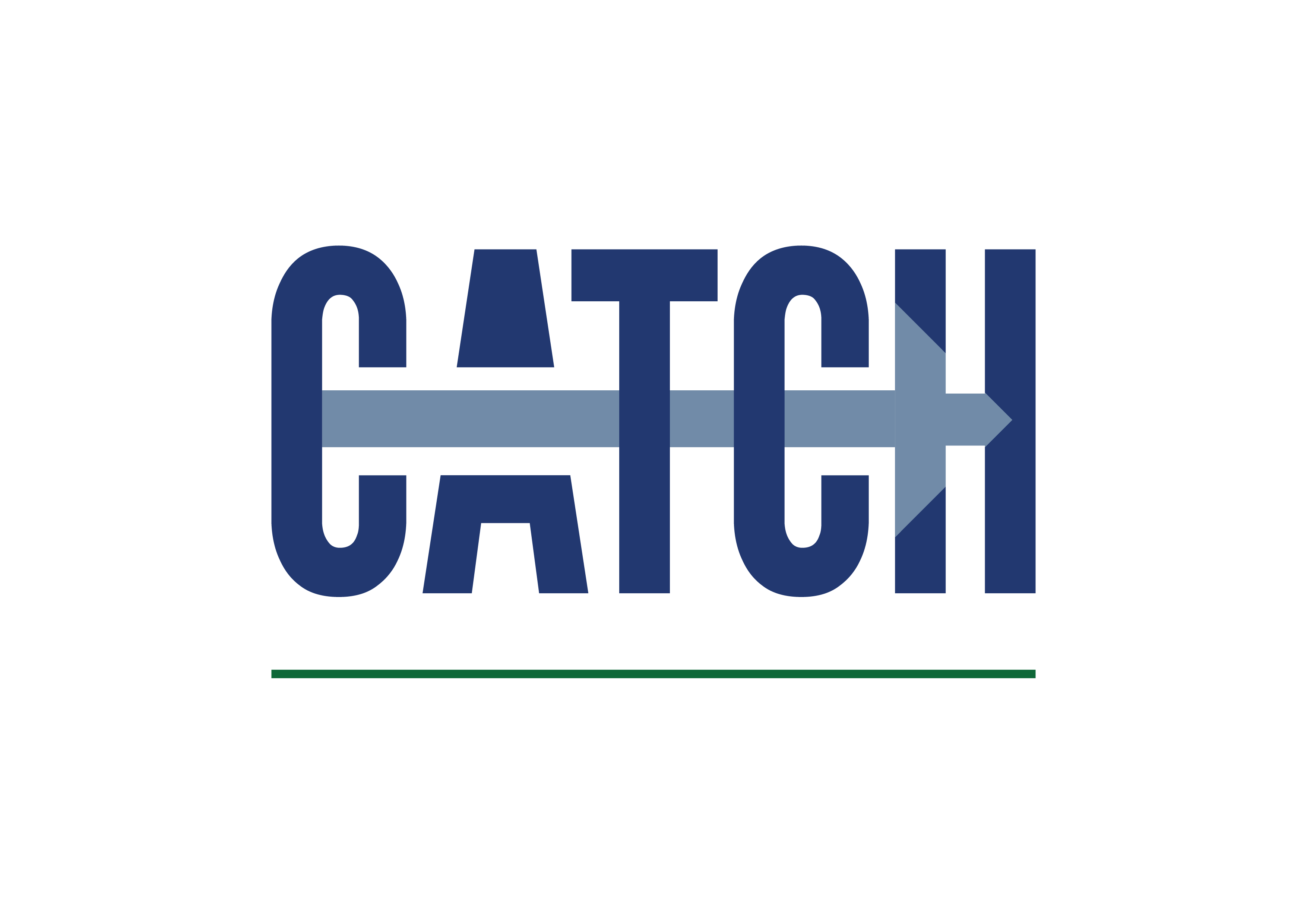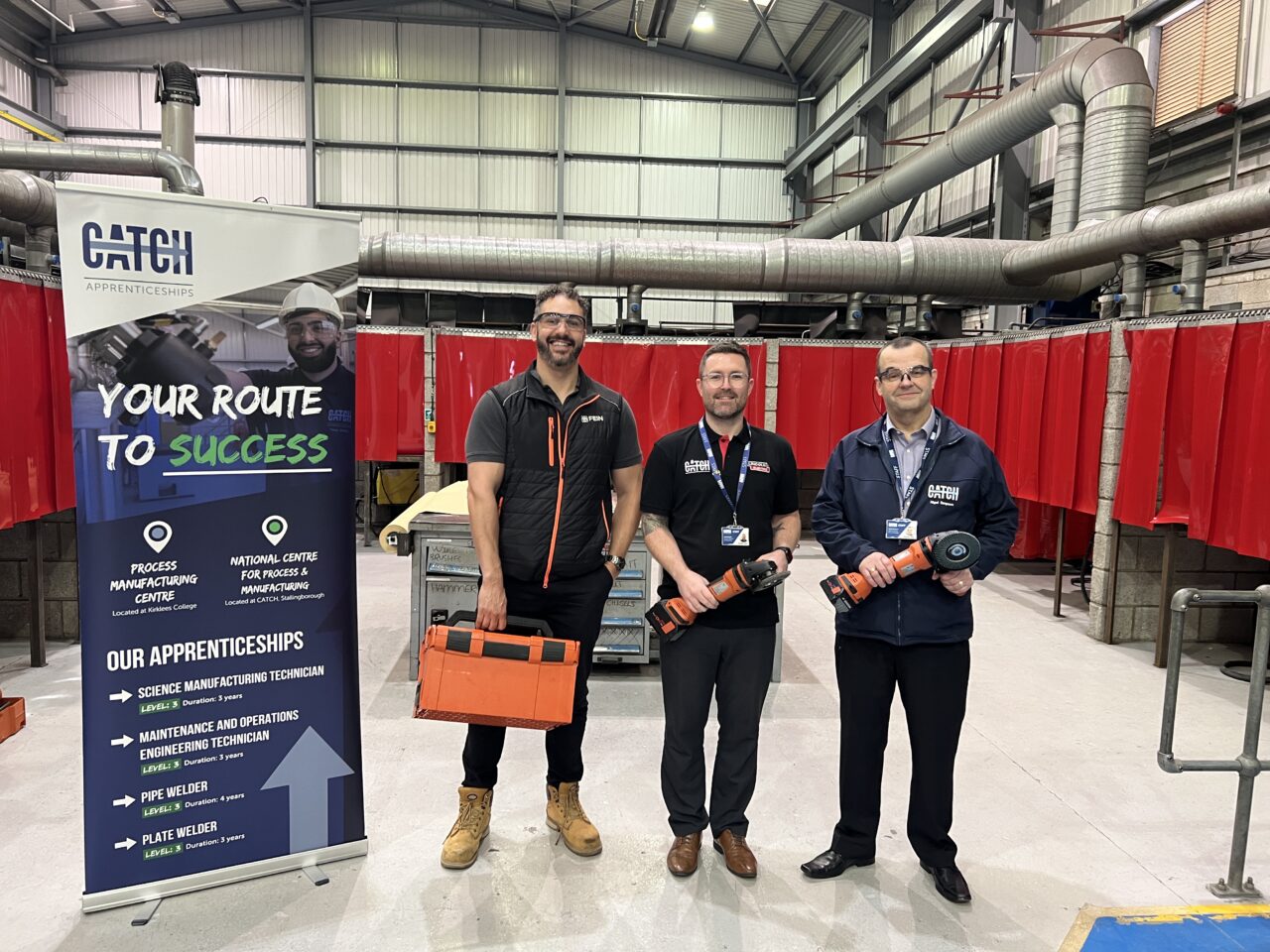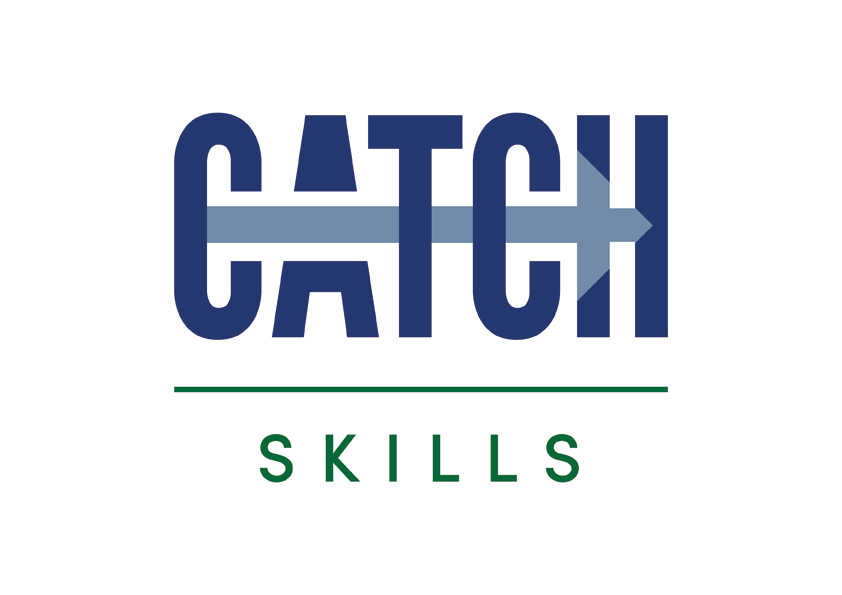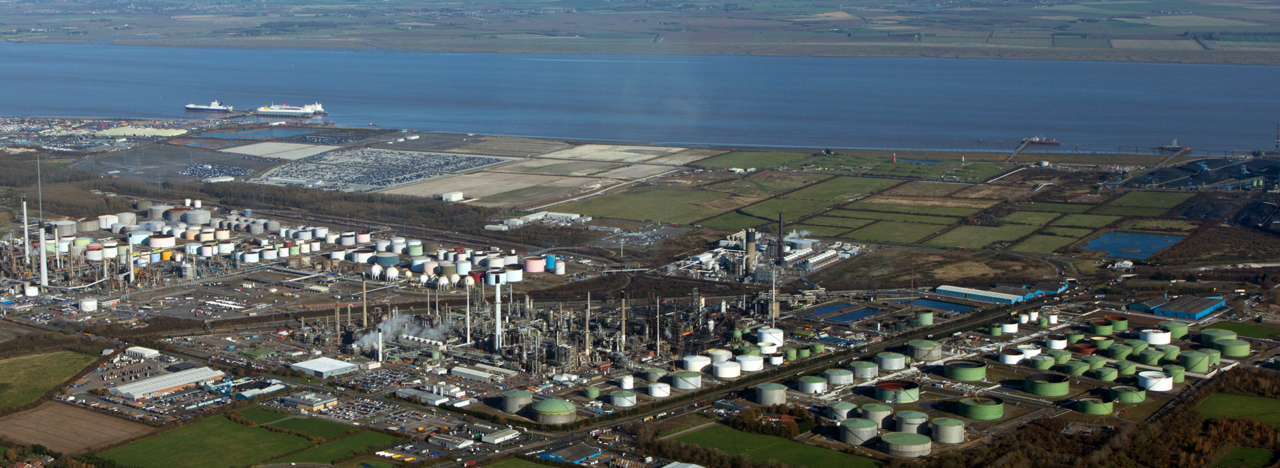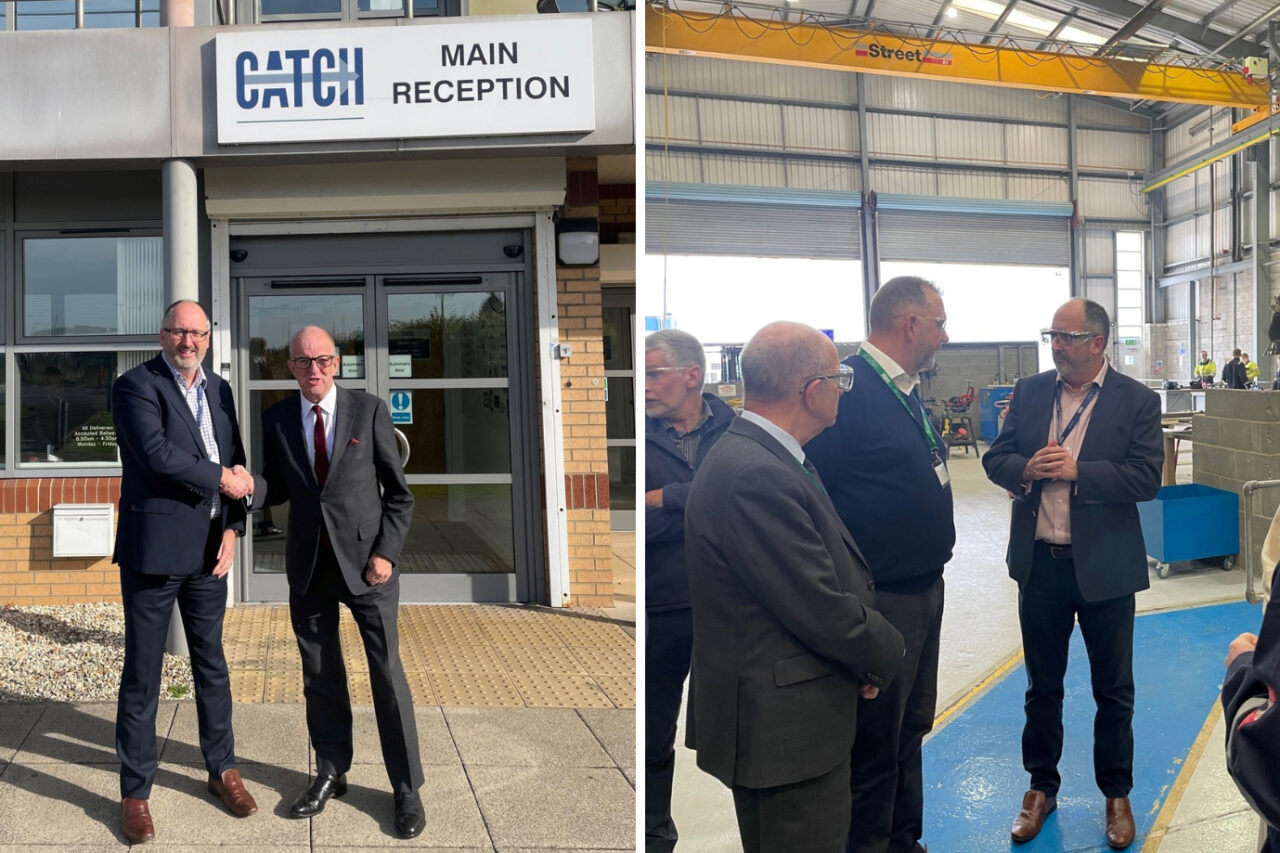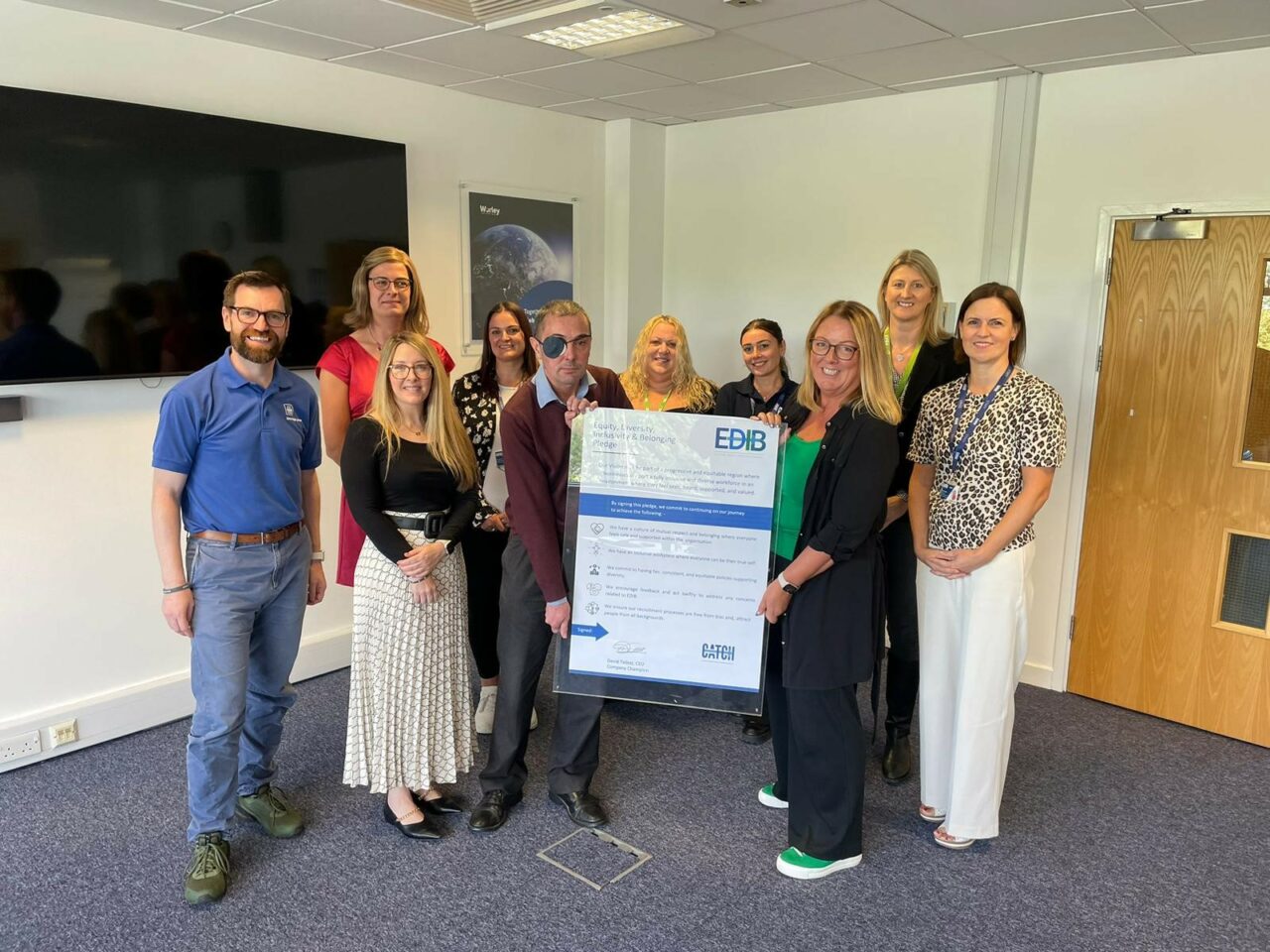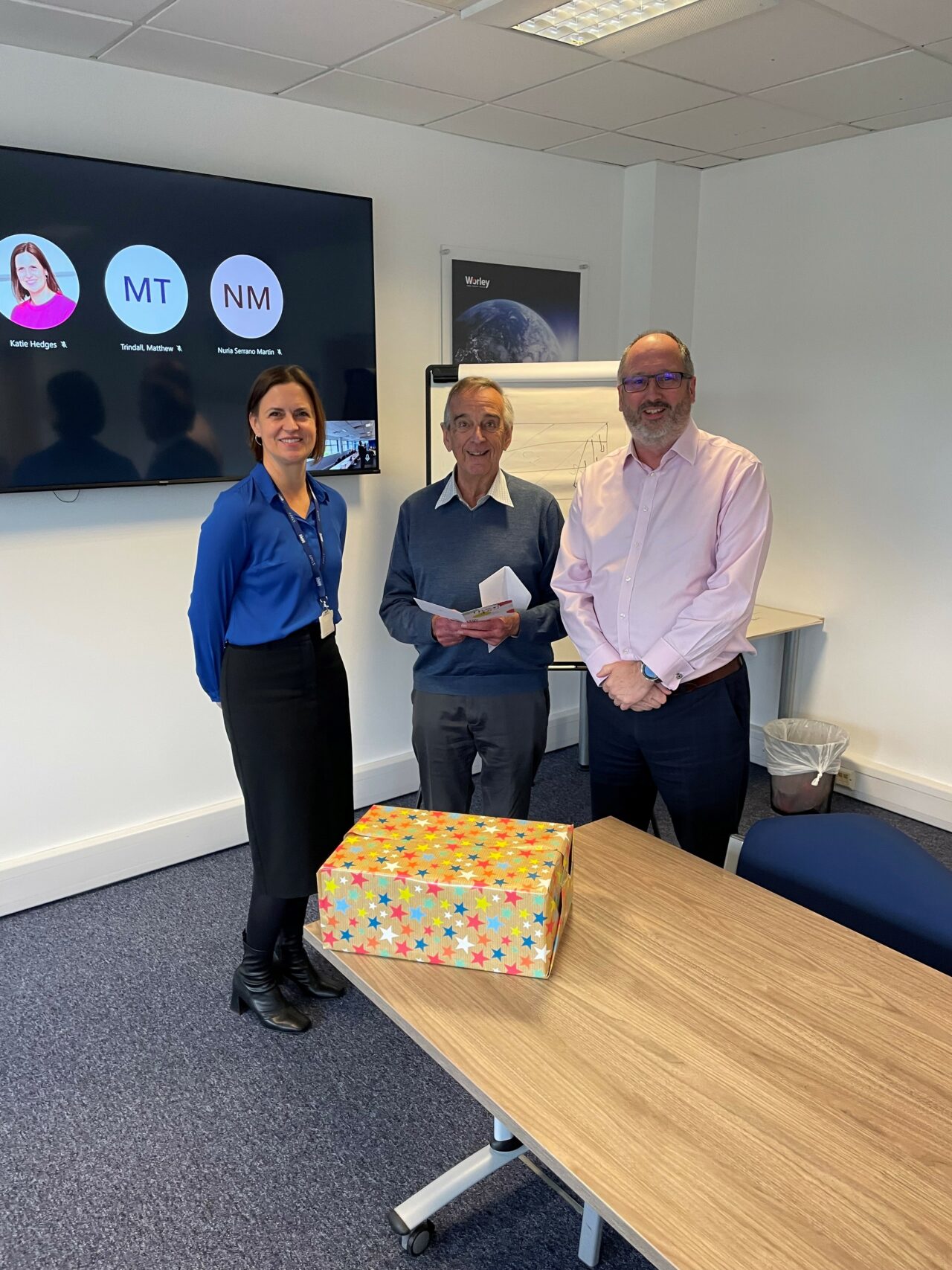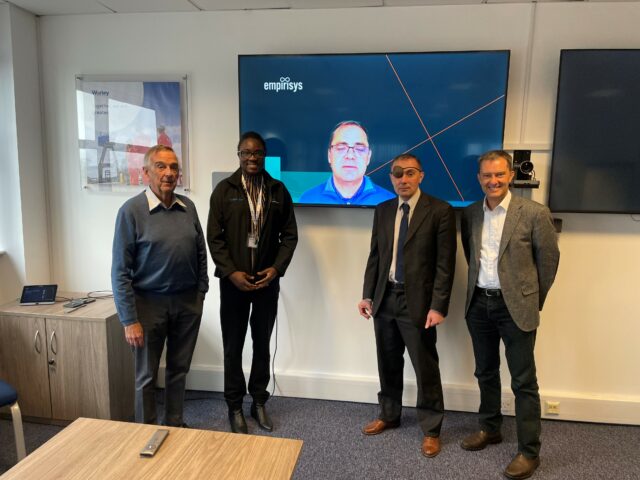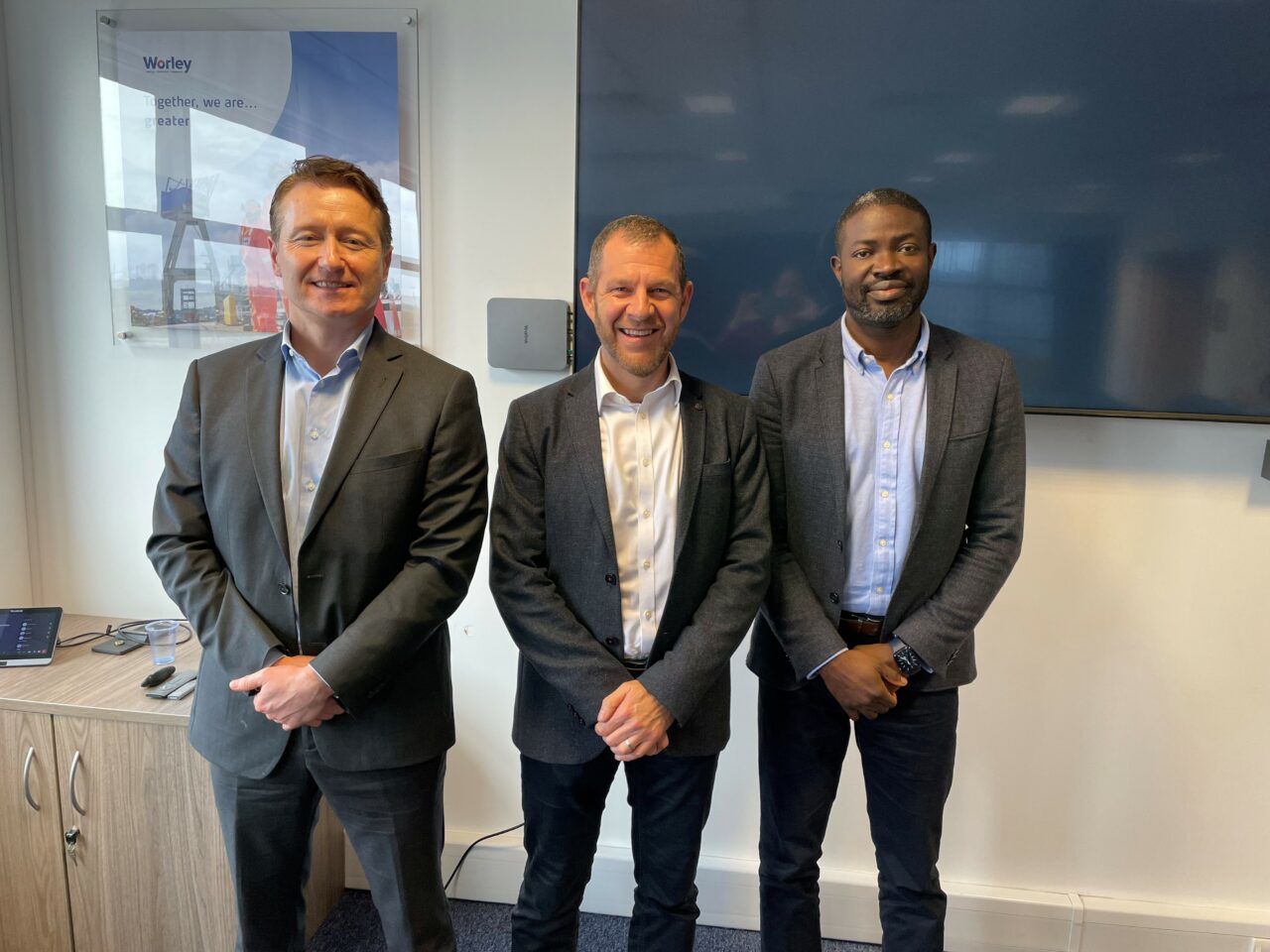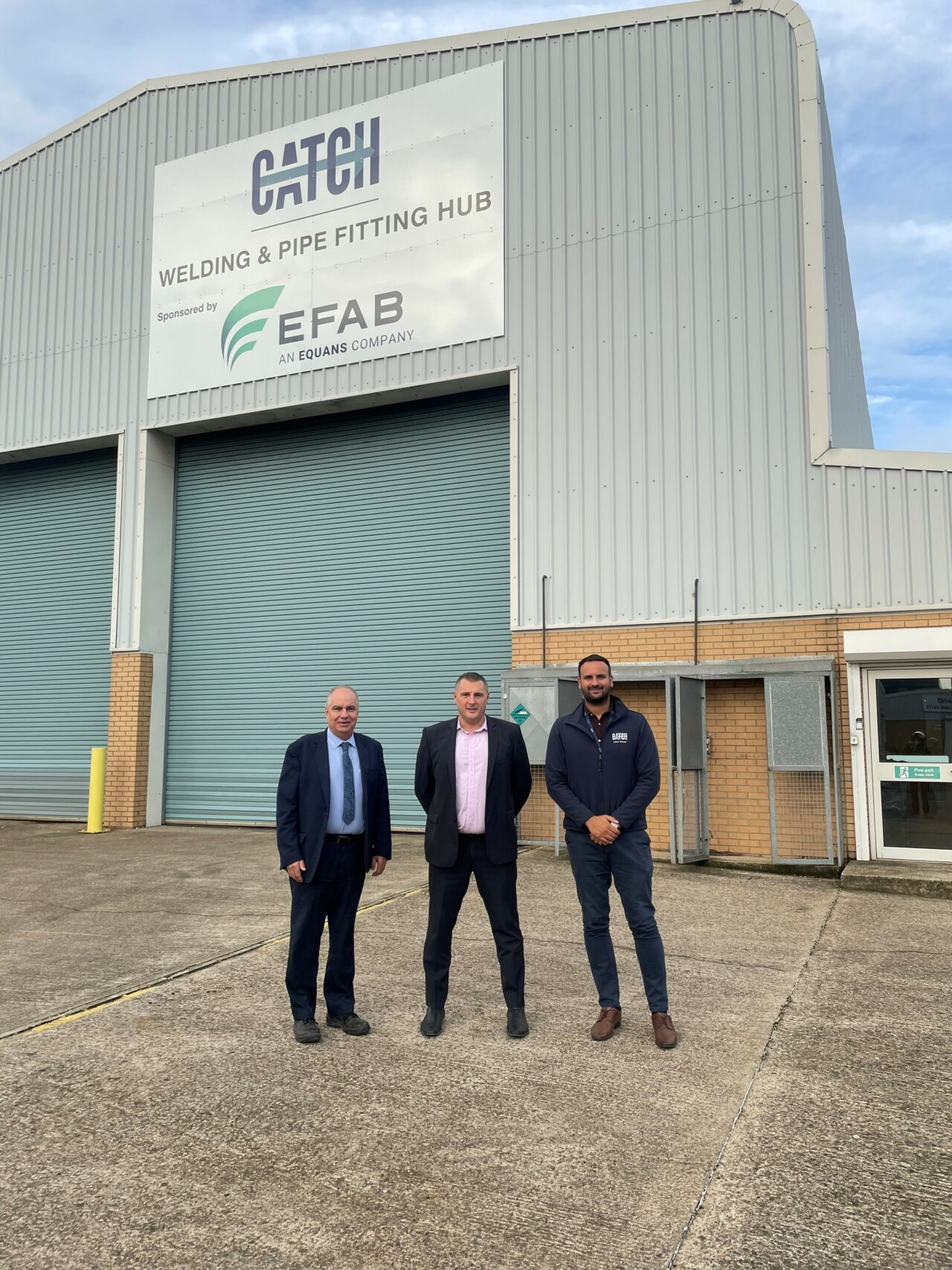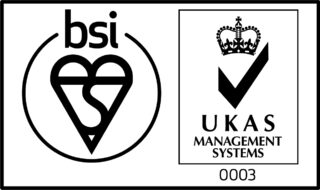‘As many of our apprentices, aged 16-24, are fairly new to the industry, they don’t have a wealth of experience when operating angle grinders’ explains James McIntosh, Chief Commercial Officer at Catch.
‘The safety of our apprentices when operating tools whilst undertaking their training is of paramount importance to us but we also need to balance this with making sure they are adequately trained on the tasks they will be required to do when they enter their employers business. We need to ensure that our apprentices can do the job required in industry with safety as a strong aspect’.
THE SOLUTION
FEIN were invited to a supplier open day that was held at the training centre in order to demonstrate some of their tools. Catch, who pride themselves on strong partnerships with industry and manufacturers, were suitably impressed by FEIN’s new standard in angle grinder safety, The Protago.
The FEIN Protago, designed in collaboration with Bouygues Construction, was launched in May 2022. Following a serious accident on Bouygues construction site, the group invited tenders to manufacturers to design a grinder that met their strict safety requirements. These included features and benefits such as compulsory two-handed operation, non-removable safe guard, and an additional safe guard and anti-kickback function. Additionally, they required a non-removable side handle and electric brake function.
THE BENEFIT
Thanks to the Protago, Catch have been able to set new standards in their training programme by improving quality, efficiency and above all, safety. Key benefits include:
- Maximum user protection due to the combination of safety features – most of the apprentices attending the training centre have little to no experience with angle grinders so user protection is key when training on a new tool.
- Optimum performance and safe handling – Catch’s apprentices were very impressed with the performance of the Protago and commented on its quality and ease of use when compared to other angle grinders they had handled in the past.
- Efficiency – Catch design their courses working closely with the employers to ensure that the skills being taught to apprentices replicates the job in the industry. The quality and performance of the Protago has allowed apprentices to do the job required whilst also maintaining high levels of efficiency.
- SAFETY – The Protago sets a new standard in angle grinder safety by eliminating nearly all common accidents caused by improper operation. By using the FEIN Protago for training, the industry’s future leaders have been able to receive adequate training on the skills required whilst maintaining the highest levels of safety.
The OUTCOME
Speaking of the partnership, Nigel Simpson, Head of Process and Maintenance Apprenticeships said: ‘FEIN attended an open day here at the training centre and it was there, that I first learned about the Protago. I was very impressed with the grinder, the benefits that were demonstrated to me, that really highlighted the safety aspects such as the two-handed operation, and could see that the Protago would fit nicely into our training programmes.’
Fein’s Nathan Ford adds: ‘Having worked in the industry for the past 15 years, I am very aware of how angle grinder related incidents can occur, usually as a result of our own complacency. With the Protago it is virtually impossible to be complacent, it gives the performance required while having all the safety features needed to allow excellent work progress in the safest way possible. With this revolutionary product in hand, my aim is now to reach out to as many health & safety managers in the construction industry as possible and educate them on how the Protago can help transform the work of their employees’.
To find out more about the Protago, visit here https://fein.com/en_uk/application-tips/protago-safety-angle-grinder/
